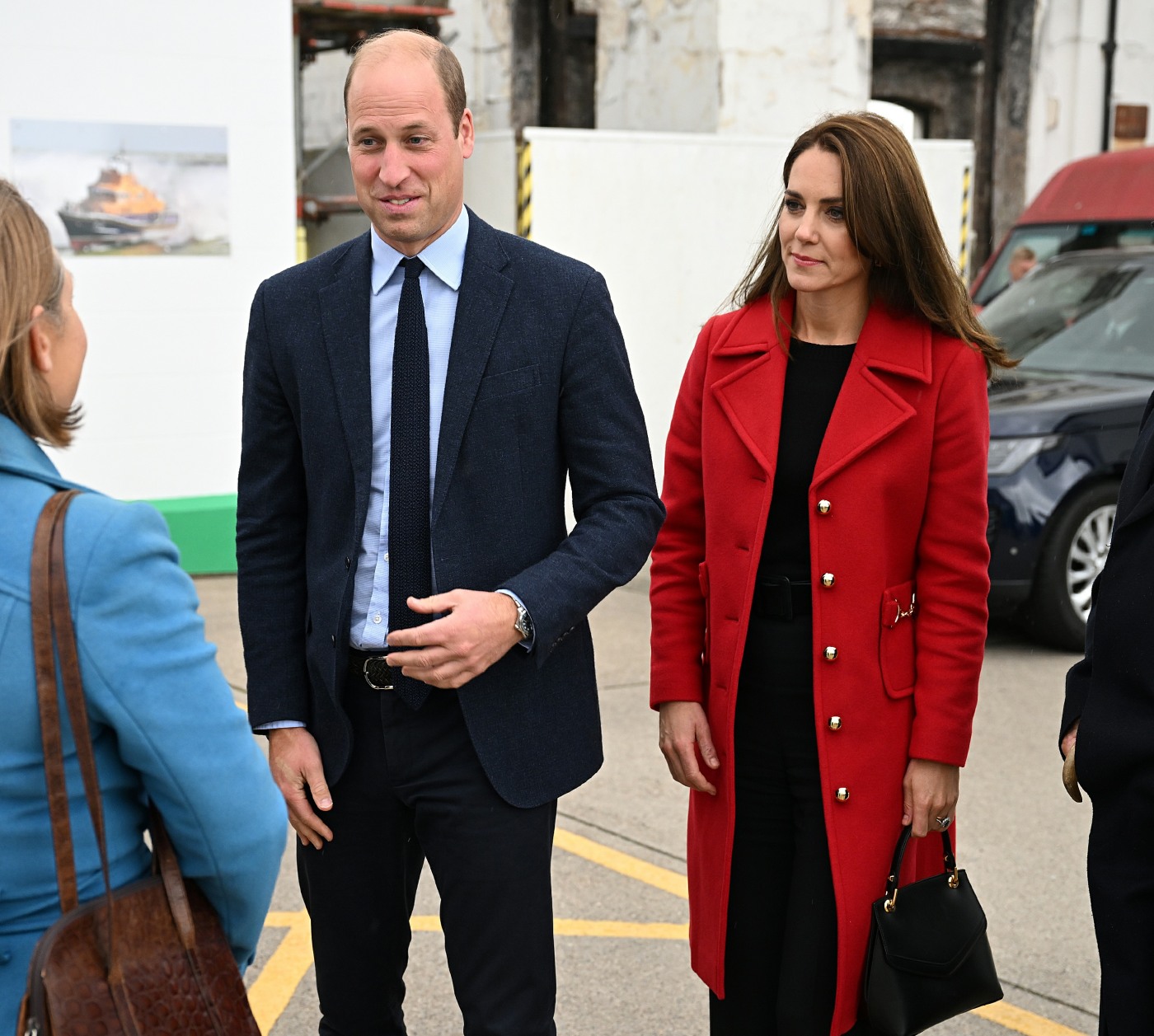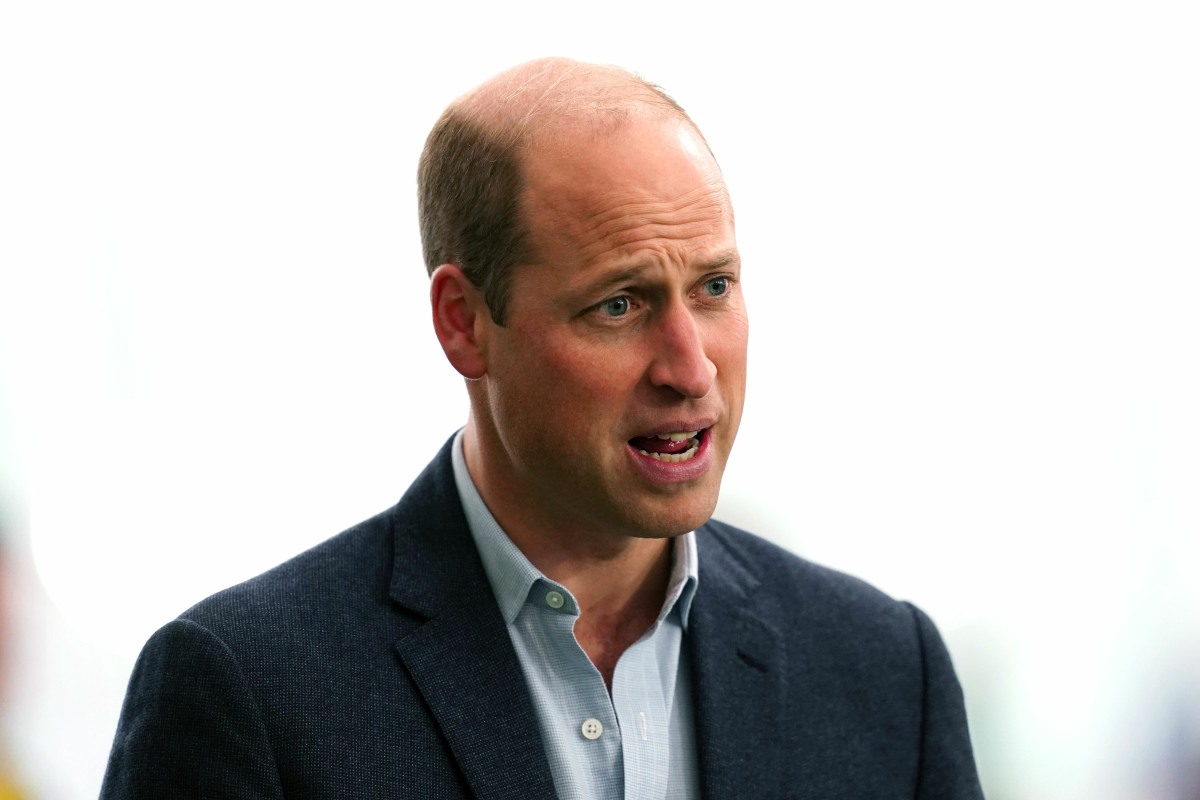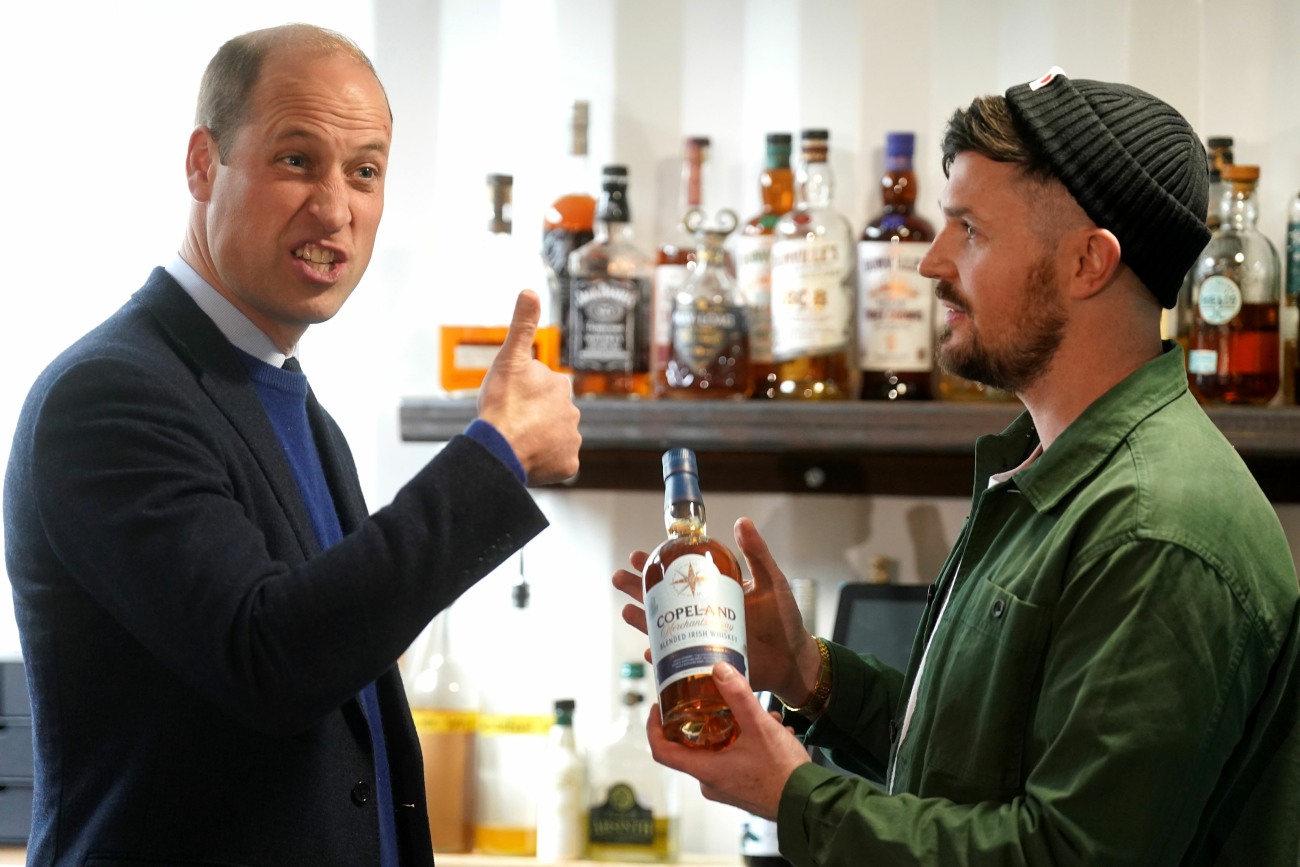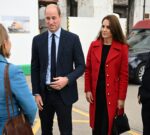Prince William is not only the new Prince of Wales, he’s also the Duke of Cornwall. The Cornwall title gives him access to the vast wealth of the Duchy of Cornwall, the largest real estate empire in the UK. When Charles was heir, he used the Duchy to further his interests in organic farming and city planning, to mixed results. One of the projects Charles was working on in recent years was transforming prime farmland in Kent into a “garden city” with townhouses and a walkable community. Now that William is in charge of the Duchy, he plans to go ahead with Charles’s scheme. Locals are not happy.
Prince William’s Duchy of Cornwall is to push ahead with a controversial 2,500 home ‘garden city’ on prime Kent farmland, despite warnings from climate activists. Although the Duchy said the ‘Faversham Project’ would be fully sustainable, campaigners have warned it risks destroying the local environment and its protected species.
Activists have called for the Duchy of Cornwall to scrap the plans, warning the 320-acre development could threaten protected bats, lizards, butterflies and wild orchids. The same accusations were laid at King Charles’ doorstep when he led the Duchy, which has been headed by Prince William since the Queen’s death.
Plans for the cutting-edge neighbourhood would see a new primary school, a cricket pitch, shops and offices built next to stylish new homes. Backers say they want to connect residents to nature, while 2,500 jobs could be created by the scheme.
However, Faversham resident Mark Sewell said many protected species will be lost and the farmland must stay in operation. He said: ‘I’ve emailed and written to Prince William but I haven’t had a reply. He is a younger and more modern royal who may be more sympathetic to the environmental damage that will be caused if this development continues. But I haven’t had a response. The farmland is so rich in biodiversity and this scheme will destroy habitats. So many protected species will be lost – there are bats, lizards, butterflies and wild orchids. It’s so sad. I have concerns about losing such good farmland. In the current climate, we need food self-security. Farmland should be kept in operation at all costs.’
A Duchy of Cornwall spokesperson said: ‘The Duchy of Cornwall is a responsible land owner committed to sustainable land stewardship and ensuring that land use meets local needs and creates positive, long-term value for communities. The proposed development at Faversham will deliver much-needed sustainable, affordable housing alongside community facilities and natural spaces that will create jobs, achieve net-zero carbon and enhance biodiversity in the area. The plans are in direct response to Swale Borough Council’s invitation to put forward proposals to answer the lack of housing in the area, with the Duchy land having been identified as the most sustainable location for the growth of the town.
First of all, I doubt William cares, nor is he paying any attention to the daily business of the Duchy and these kinds of issues. Charles put competent professionals in place to execute his vision for the Duchy, and as far as I know, those professionals are still there under William. As for the issues raised… it’s a debate between “we need affordable housing and this housing scheme could bring jobs to the community” versus “we need to protect the fertile farmland and local biodiversity.” I don’t have an answer. William doesn’t have an answer. I just hope that the Duchy doesn’t cut corners or refuse to listen to the local community’s concerns.
Photos courtesy of Avalon Red, Cover Images.
- Britain’s Prince William, Prince of Wales and his wife Britain’s Catherine, Princess of Wales visit the RNLI (Royal National Lifeboat Institution) Holyhead Lifeboat Station in Anglesey, north west Wales on September 27, 2022.,Image: 726451037, License: Rights-managed, Restrictions: , Model Release: no, Credit line: PAUL ELLIS / Avalon
- Prince William, Prince of Wales, and Catherine, Princess of Wales, visit St Thomas Church, a re-developed church in Swansea which supports people in the local area and across the City and County of Swansea. Tuesday 27 September 2022.,Image: 726477686, License: Rights-managed, Restrictions: , Model Release: no, Credit line: Geoff Pugh for the Telegraph / Avalon
- Britain’s Prince William, the Prince of Wales and President of the FA, centre right, stands with England soccer coach Gareth Southgate, centre left, as he visits England’s national football centre at St. George’s Park to mark its 10th anniversary as the home of English football, in Burton upon Trent, England, Wednesday, Oct. 5, 2022.,Image: 728290132, License: Rights-managed, Restrictions: POOL PHOTO, Model Release: no, Credit line: Rui Viera / Avalon
- Prince William, The Prince of Wales during a visit to St. George’s Park in Burton upon Trent to mark its 10th anniversary as the home of English football. Featuring: Prince William Where: London, England, United Kingdom When: 05 Oct 2022 Credit: PA Images/INSTARimages.com/Cover Images **North America Rights Only**
- Prince William, The Prince of Wales during a visit to St. George’s Park in Burton upon Trent to mark its 10th anniversary as the home of English football. Featuring: Prince William Where: London, England, United Kingdom When: 05 Oct 2022 Credit: PA Images/INSTARimages.com/Cover Images **North America Rights Only**
- The Prince and Princess of Wales during a visit to Trademarket, a new outdoor street-food and retail market situated in Belfast city centre, as part of the royal visit to Northern Ireland. Featuring: Prince William, Prince of Wales, Catherine, Princess of Wales Where: Belfast, Northern Ireland, United Kingdom When: 06 Oct 2022 Credit: PA Images/INSTARimages.com/Cover Images **North America Rights Only**
- The Prince and Princess of Wales during a visit to Trademarket, a new outdoor street-food and retail market situated in Belfast city centre, as part of the royal visit to Northern Ireland. Featuring: Prince William, Prince of Wales Where: Belfast, Northern Ireland, United Kingdom When: 06 Oct 2022 Credit: PA Images/INSTARimages.com/Cover Images **North America Rights Only**
- Prince William And Catherine, Princess Of Wales Visit To Northern Ireland The Prince and Princess of Wales during a visit to Trademarket, a new outdoor street-food and retail market situated in Belfast city centre, as part of the royal visit to Northern Ireland Featuring: Prince William Where: Belfast, Northern Ireland, United Kingdom When: 06 Oct 2022 Credit: PA Images/INSTARimages.com/Cover Images **North America Rights Only**






















Save the farmland and dismantle the monarchy. Give THAT land away to combats homelessness.
Problems solved.
To be fair, that wouldn’t solve the problem with lack of housing in Cornwall. Cornwall is a popular destination for second homes, and second-home-owners are outpricing the much poorer locals who can’t afford to live in Cornwall anymore, because rich folks from London buy up all the houses. Anything that helps the locals is a good idea.
This development isn’t in Cornwall it’s in Kent – about an hours drive from London. I live in faversham l, which is a historic market town in countryside with the infrastructure and feel of a market town. It’s why people choose to live here and not in a city (including me who moved out two years ago)z There has been A LOT of development here recently and all of our services are stretched. People aren’t happy. Not only does it destroy the local wildlife it also essentially doubles the town and will completely change the feel of the place. It also won’t do anything to deal with affordable housing as it will as I understand be majority private developments
Thank you for this information, my mistake! I automatically thought it’s Cornwall because, well, he is the new duke of Cornwall so it made sense to me that he would take up a project helping Cornish people. (One can still hope, I guess?)
Fertile topsoil is not an infinite resource. This is a terrible project. They need affordable housing? Great, I know of a large number of humongous houses that are barely used in Britain that can be subdivided into affordable apartments. Starting with Windsor.
You know what’s really good for the environment? Locally-produced food. Charles was always a terrible excuse for an environmentalist, one who really cares about “purity” and not the actual environment and people living with it.
Couldn’t agree more – locally produced food, sustainably raised meats, this is the future we need.
Putting the royals aside for a minute, this seems to be an ongoing issue of NIMBY vs. developers and the need for affordable housing, vs. community preservation,which can be both good and have it’s downsides . This is a constant issue in most cities/suburbs. It should go through all the proper channels to be fully vetted,with the environmental impact taken seriously, and adjusted if need be. I doubt at this early in his stewardship if William knows most of the details but maybe he can finally find something to genuinely focus on with the Duchy. This guy has been handed an immeasurable amount of concentrated wealth so hopefully he’ll be less bitter and jealous of others.
This early in his stewardship? You he W too much credit. This has been his life’s goal for all 40 years of it. He should know this like the back of his hand. The ascension have been in make only not practice.
look at this and dont even both with actual info presented. I just wonder what the hell would have been Harry’s portfolio? Would he just had been left to twiddle his thumbs like Andrew? According that lady on the British Talk Show “I just dont get it! ”
Let us say that Harry had not started Invitus or Sentabale and there was no Meghan. Would just be made to run around to all the places and events that Charles and William could care less about. Would be expected to be as Maragaret had been to Elizabeth and Anne has been to Charles. Would that be all that was expected of him. No wonder he left! Harry probably would have ended up killing himself …on booze and drugs …Lucky for him he did not seem the philandeering type.
British Celebitches: I know y’all are probably over this question by now so I wouldn’t mind a search rec instead of an answer. If the Duchy of Cornwall is the the biggest real estate holding in the UK, what is the Duchy of Lancaster and how does it make money for the monarch?
@Steph – here’s a good article that explains the Duchy of Lancaster. In a nutshell, it’s a murky way that provides the reigning monarch a sh*t-ton of money. https://www.townandcountrymag.com/society/tradition/a34162471/duchy-of-lancaster-explained/
Thanks @jaded
I’m a PhD environmental engineer, with an undergrad degree in agricultural engineering. I don’t know the specifics of this project or a lot about farming practices in the UK. However, farming in the US is often extremely detrimental to the environment and hurts biodiversity. Further, commodity crops grown in large fields do not go directly towards human consumption – and certainly do not contribute to locally grown sustainable food systems. That doesn’t mean a housing development is better for the environment or land, but I find the farmland argument here strange. Perhaps farming is much much different in that area?
PhD in agricultural engineering here, and my Sacramento Valley California farmers contribute enormously to the environment and habitat. Our fields contain far more wildlife than urban or suburban spaces and farmers spend an enormous portion of their organizational efforts supporting migratory birds, waterfowl, fish habitat and food chains, and wild corridors. Have these initiatives been forced on them by the state? Yes, they have, but the farmers have risen to this challenge and sacrificed far more for their local environment than my San Francisco Bay community.
I don’t doubt California does a much better job at regulating ag to support conservation and biodiversity. That being said, the proliferation of large industrial scale ag is the opposite of biodiverse – large areas are planted with one crop that *maybe* is rotated once a year. I’m in the Midwest and when corn prices go up crop rotation goes out the window.
You don’t have to believe me about the impact of industrial ag on biodiversity – there are plenty of studies and reports highlighting the problem. For example, a report from researchers in the UK: https://www.chathamhouse.org/sites/default/files/2021-02/2021-02-03-food-system-biodiversity-loss-benton-et-al_0.pdf
I maintain that the biodiversity argument doesn’t make sense. What would be best overall is to preserve the area as habitat without farming or urbanization.
Charles and William’s objective remains the same make as much money as they can not the protecting the environment. Both use the environment to bolster their image as global statesmen, nothing else.
Whatever this project is, it will NOT be built by William. He’s truly incapable and unwilling, a great combo for getting squat done.
William’s not capable of building a chicken coop. This is yet another way of extracting money from the peasantry under the guise of “oh…it’s going to be ecologically designed and respectful of the environment”. Bollocks, it’s an ATM machine for the useless royals.
When I look at Kaiser picture selection of Willy, all I see is teeth, big yellow teeth.
omg, why? is this “garden city” even going to be composed of native species?
Gardens are good for when you’re converting brownfield lands into something more useful, but this is just creating more pollution, especially when you think about what it takes to maintain them.
If they’re really trying to be environmentally friendly, perhaps they should reclaim the farmland back into forest/peatlands and create trails and use that for tourism.
Are there no environmental groups in the UK to protest or sue for the protection of endangered species? Or are they all royal-adjacent so take no action? This looks bad for someone crying about endangered African wildlife and criticizing actions by Africans.
There used to be in the EU that offered collective protection, am uncertain where this situation would fit in post-brexit UK.